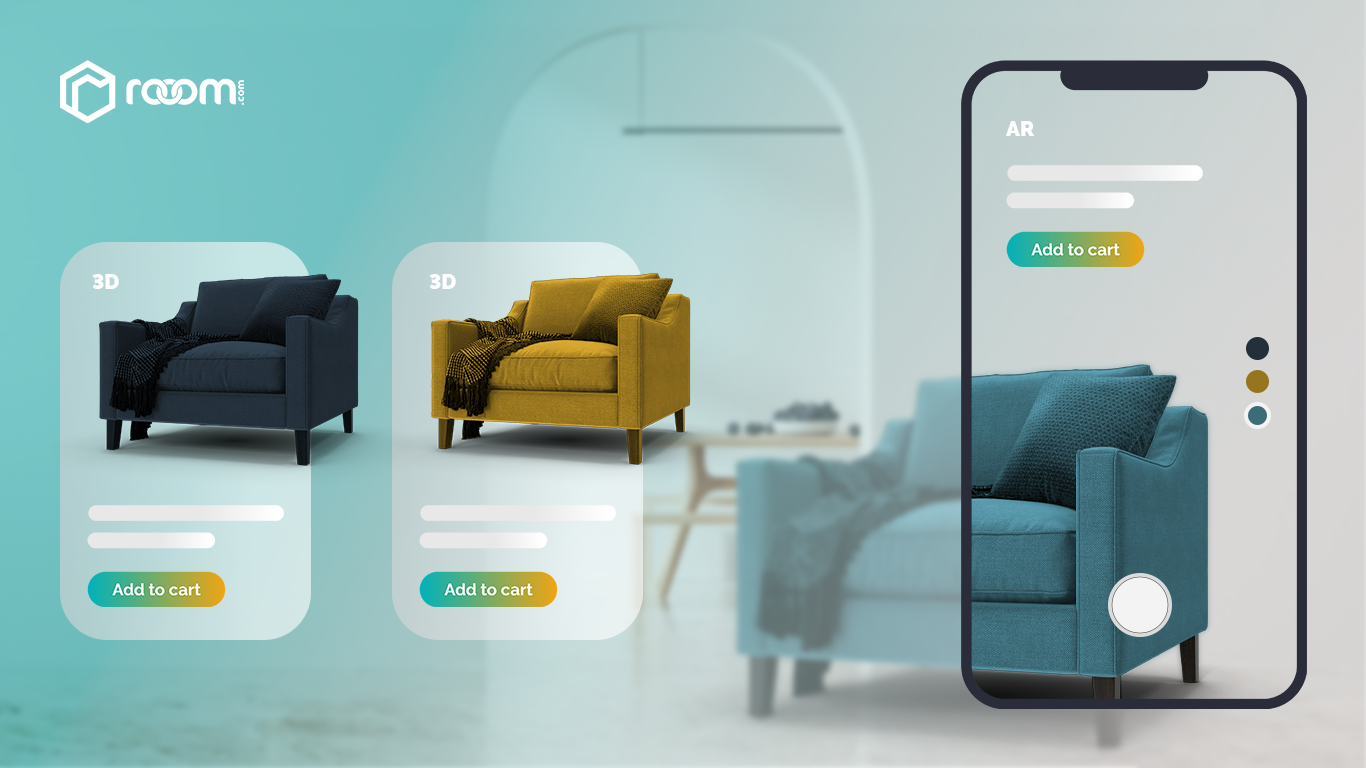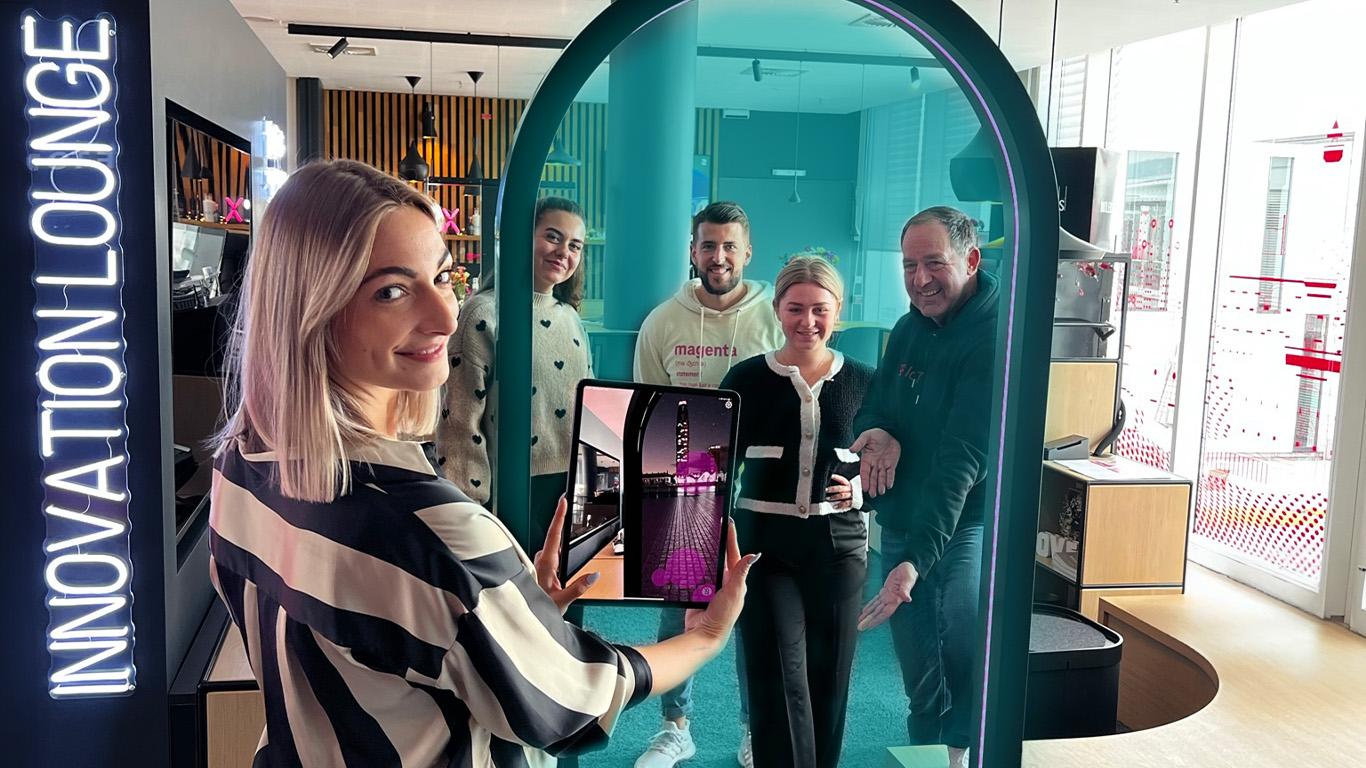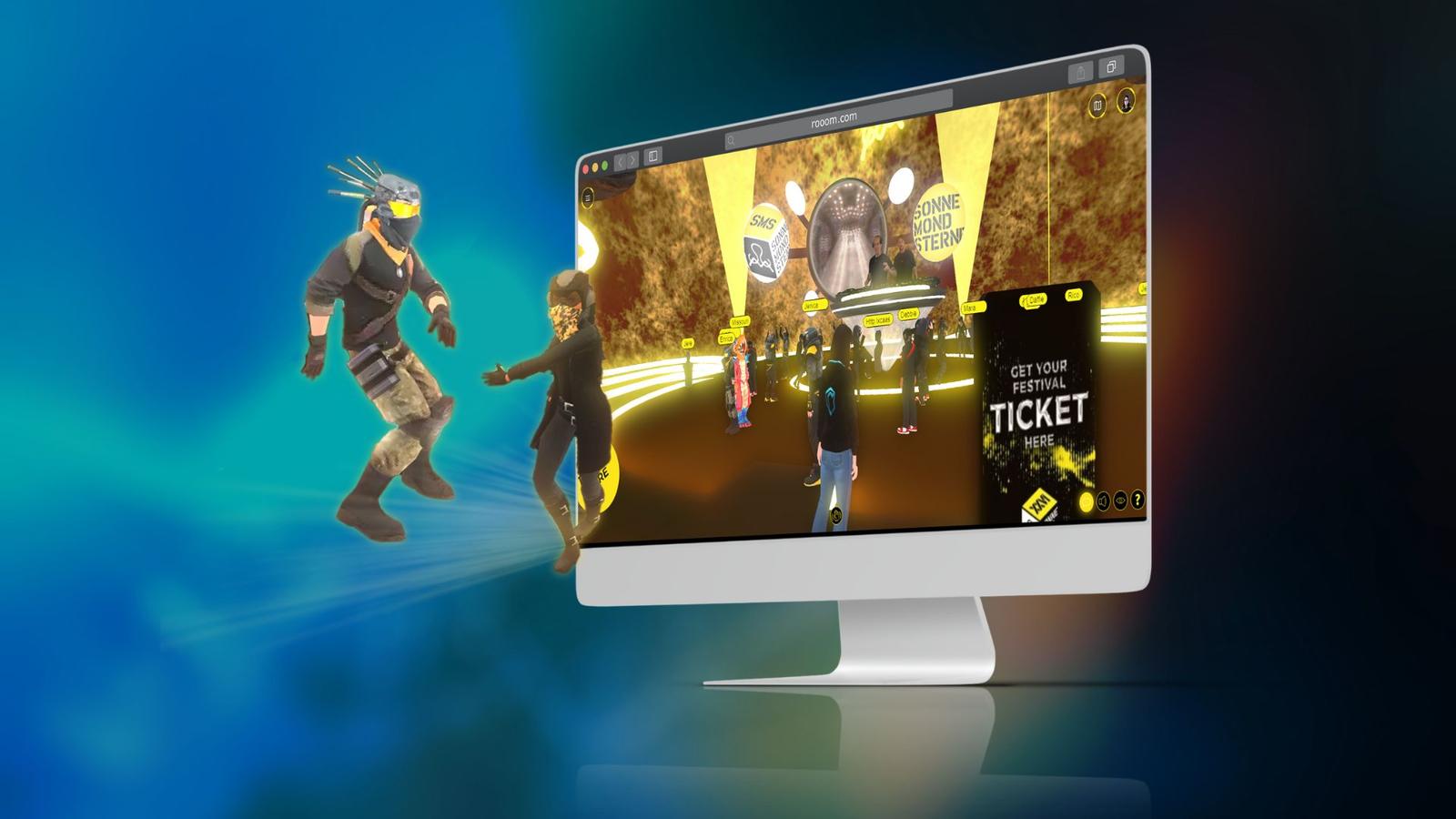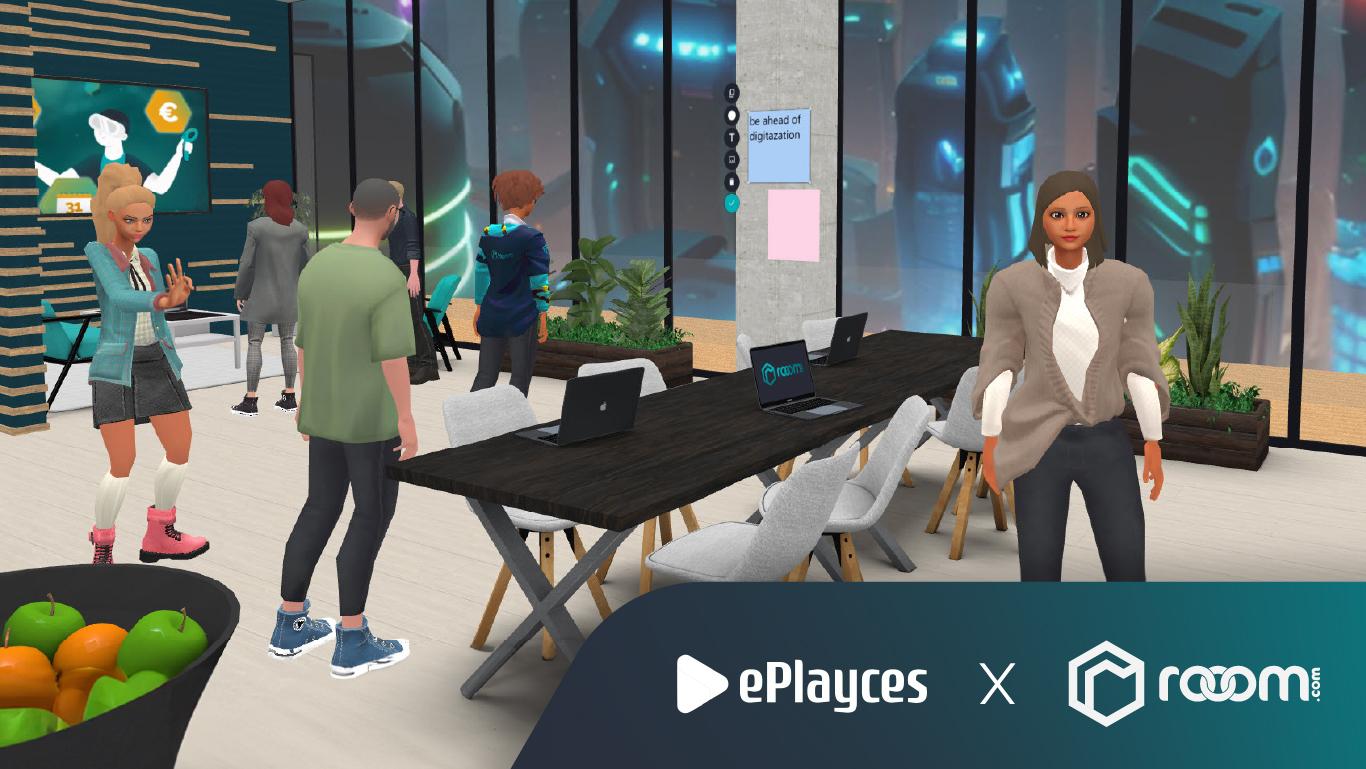Blog
Immersive Technologies in Sports Marketing
- Hot Topics
- Case Studies
- Blog
Technologies like Virtual and Augmented Reality are changing the way sports enthusiasts pursue their passion, offering unique opportunities for sports brands, leagues, and teams to engage with fans and create intense experiences. Leading sports brands such as Nike are increasingly investing in Metaverse marketing and NFTs. This is because immersive technologies open up new ways to interact with fans and create a sense of belonging and community. But what does this look like in action? We present practical examples and tell how, among others, the soccer club Bayer 04 Leverkusen has already successfully used AR technology.
What are immersive technologies?
Immersive technologies enable an intense immersion into a computer-generated or enhanced reality. This includes Virtual Reality (VR), Augmented Reality (AR), and Mixed Reality (MR). These technologies create an experience that blends the physical and digital world.
Use Cases for immersive Sports Marketing
You can create spatial experiences both on the web and at live events. Different devices and headsets also provide various ways in which AR and similar technologies can be effectively used. We currently see the most potential in these areas:
Stadium Visit as an Avatar: Imagine watching a football game live by sending your own avatar to the stadium. This immersive experience not only provides a realistic insight into the game, but also enables the community to network and interact with each other in a virtual environment – a completely new experience with a sense of unity and team spirit.
Augmented Reality: AR installations at events offer a new way of interaction. It doesn’t always have to be an uncomfortable or expensive headset: many AR applications run on mobile devices and are accessible from anywhere. For instance, athletes can come to life from a sticker or a collectible card.
NFTs and Digital Merch: Digital wearables like jerseys or hoodies not only strengthen brand identification but can also open up new revenue streams. Web3 sports ecosystems and marketplaces like Cheeer are already offering solutions for the commercial use of digital assets.
Sponsoring in the Virtual World: Digital formats are also interesting for sponsors as they potentially offer more visibility. In 3D environments, branded advertising banners and product placements are just as present as in traditional sports marketing.
Virtual Meet & Greet: Through immersive technologies, fans can interact with their favorite athletes and even take selfies as if they were right there with them. Virtual training sessions can also take place with sports influencers. These personalized experiences strengthen the bond between fans and their idols.

Best Practice: Augmented Reality in Sports Marketing
What many applications of immersive technologies still lack is a genuine connection between virtual content and the real world. This is why the Bundesliga team Bayer 04 Leverkusen used immersive technology to bridge this gap. For the OMR Festival 2023, Europe’s largest trade fair and conference for online marketing and digital business, a very special experience was developed. Under the motto "Experience the Werkself up close" visitors had the opportunity, thanks to Augmented Reality, to celebrate virtually in the stadium together with the team and fans. This was made possible by the rooomPortal, a gadget for interactive experiences in AR. The Augmented Reality Portal is an installation for experiential marketing, consisting of an archway and an AR marker placed on the ground under the portal, functioning similarly to a QR code. The installation was completely branded for the soccer club, and the large logo on the top was a real eye-catcher for the booth and stood out at the OMR Festival. The figure of star player and current football world champion Exequiel Palacios gave the impression of stepping right out of the portal.

Visitors could scan the marker with a tablet camera and look through the gate into the "BayArena" football stadium in Leverkusen. By stepping through the AR portal, they were immersed in the football stadium and could experience a magical moment up close, witnessing the Bundesliga team’s winning goal against FC Bayern Munich. Suddenly, you find yourself on the edge of the playing field, in the midst of the team, the coaches, and thousands of cheering fans. This Magic Moment wasn’t just a static photo or panorama, but an immersive 360° video. What’s special about it is that it offers a 360° view, and you can even move and look around in the middle of the scene, making you feel like you are part of the action. The portal and rooom’s software allow for even more interaction points. For instance, it is possible to integrate links to merchandise shops, player profiles, or even NFTs.
The rooomPortal creates a completely new touchpoint to the Metaverse – an immersive experience that connects the real with the virtual world. It’s a fun way to introduce the audience to immersive technologies, and for sports brands or clubs like Bayer 04 Leverkusen, it offers an exciting experience. The major advantage is that people don’t have to wear an uncomfortable VR headset, but can enjoy the experience directly with their smartphone, which they already have in their pocket. It's also a great fit for future applications on headsets like Apple’s Vision Pro as the technology is fundamentally compatible with many different devices.
The portal experience was a highlight for the trade fair audience. Stepping into a virtual world and getting that "WOW" moment was seen as both impressive and entertaining – with a positive impact on the brand perception of Bayer 04 Leverkusen. Brands and clubs can also benefit from the immersive experience as they are a step ahead of the competition. Identification with a team or brand can be significantly strengthened, and visitors become brand ambassadors themselves by sharing photos and videos on social media. Bayer 04 Leverkusen succeeded in giving the audience at the fair a way to be closer than ever to the team – with an immersive experience that no other club can offer. The agencies NEXTLIVE and Roover supported rooom and Bayer 04 Leverkusen as partners in the promotion. Josua Lehr, Head of Pre-Sales & Product Development B2B at Bayer 04 Leverkusen, said about the cooperation:
The brand experience of our Werkself at the OMR, which NEXTLIVE, together with Roover Metaverse Consulting and rooom AG, implemented, was a complete success. We are currently thinking about how we can shape the collaboration in the future.

The Bayer AR-Experience was so well received that the joint project was awarded the European Metaverse Award in the category "Top Sports Brand Initiative". The European Metaverse Awards are considered one of the most important awards in the fields of Metaverse, Crypto, and Blockchain.
rooom brings together various technologies such as 3D, AR, and VR on a single platform. The immersive content can be deployed on the web, via an app, or with a headset. Thanks to a Content Management System, content can be created without the need for programming – making immersive sports marketing a breeze.
Game On!
Immersive technologies are getting more and more popular in sports marketing, with great potential to shake things up. AR and VR are not just technological gimmicks, but a transformative force, changing the way we experience events, sports, and fandom.
Now that the hype around the Metaverse has settled down, concrete use cases are being developed. Those who act now have the opportunity to actively shape our future. It’s time to experiment and develop new formats that specifically target younger audiences. Through gamification and entertainment, the engagement of younger fans can be increased, captivating and retaining them sustainably. Collaboration between clubs and brands in this area leads to a win-win situation, where both fans and brands can benefit. Of course, new challenges and data protection aspects can arise, as digital information and personal data may be disclosed. It’s clear: The Metaverse revolution in sports marketing has begun and promises an exciting future for sports and its followers.














